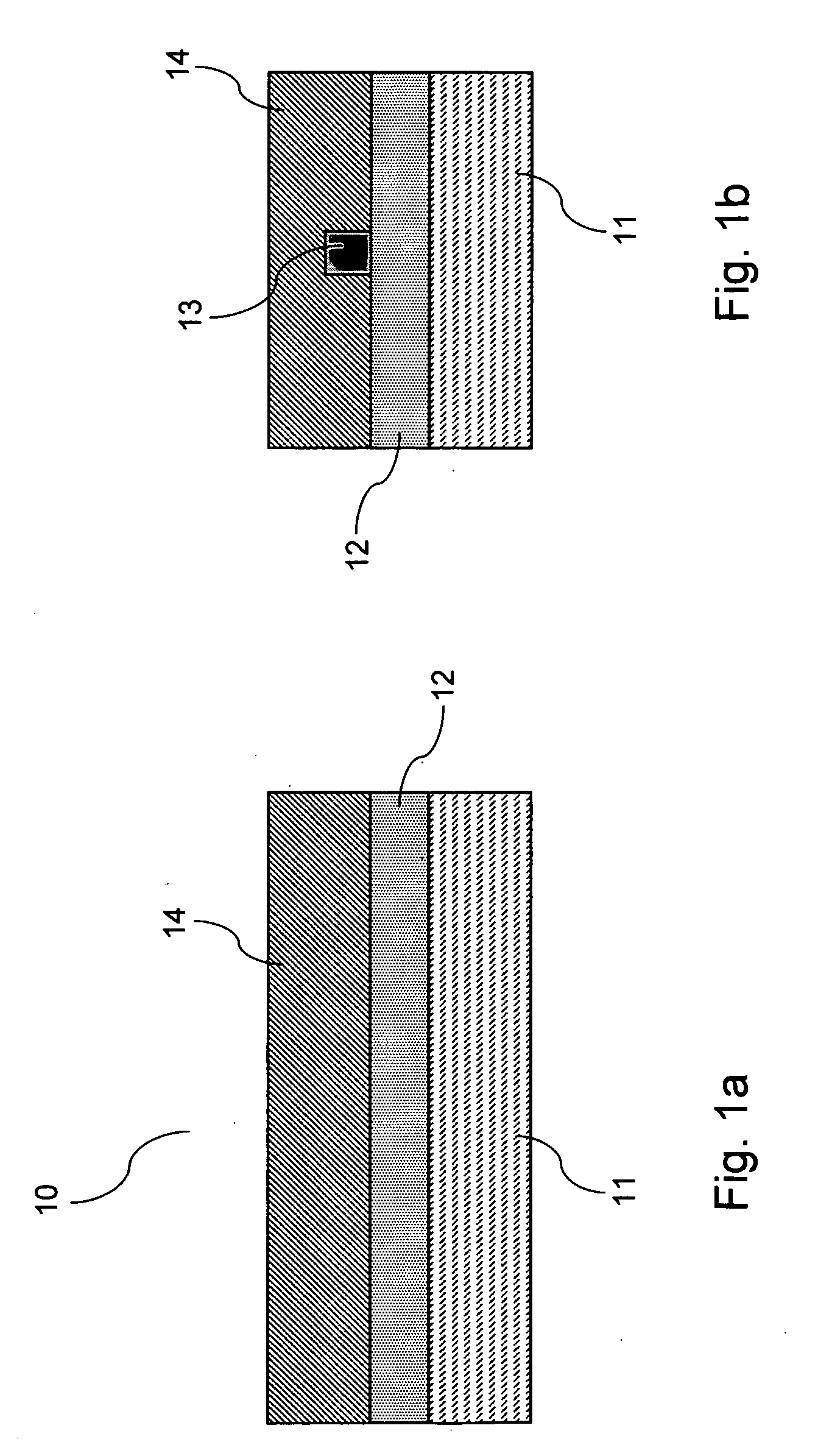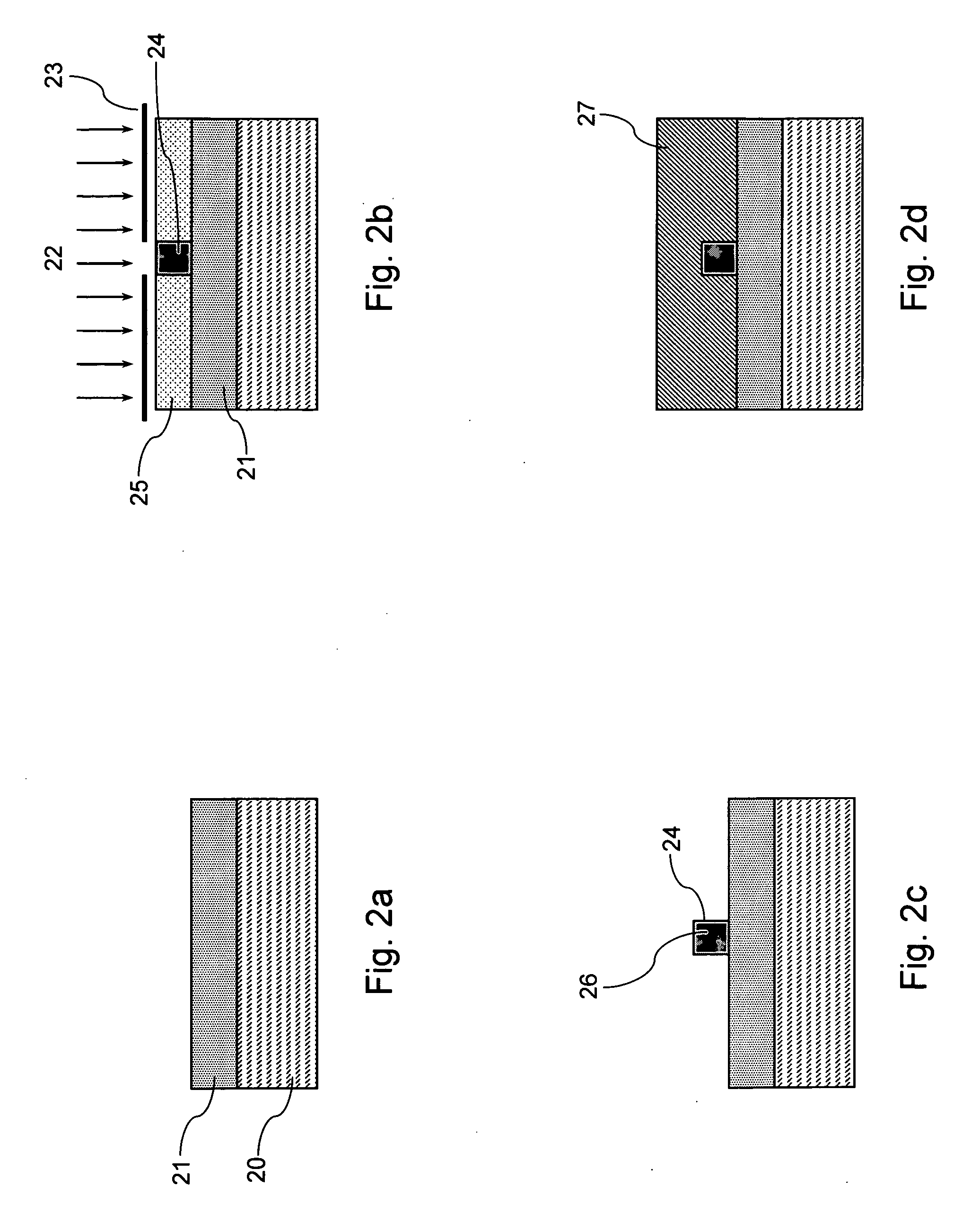Process for producing polysiloxanes and use of the same
- Summary
- Abstract
- Description
- Claims
- Application Information
AI Technical Summary
Benefits of technology
Problems solved by technology
Method used
Image
Examples
examples 1-12
[0091]A number of examples are shown in Table 1, all relating to the production of a siloxane polymer material from a 1:1 (by mole) mixture of diphenyl silanediol (DPS, molecular mass 216.3, structure V) and 3-methacryloxypropyltrimethoxysilane (MPS, molecular mass 248.4, structure VI). The product polymer is crosslinkable via the methacrylate functionality.
General Procedure:
[0092]DPS and MPS were mixed and heated to 80° C. for 30 min. Catalyst (and solvent if required) was added and the mixture maintained at 80° C. for 1 hr, with the reaction time (defined as the time taken for the reaction mixture to turn clear after the catalyst (and solvent if required) had been added) recorded. Note that since DPS is a white powdery solid, the reaction time is easy to determine. If the reaction mixture did not turn clear after 1 hour, the system was labelled ‘no reaction’. If a reaction did occur, the methanol (co-catalyst and condensation by-product) was removed by distillation at 80° C. under...
examples 13-19
[0095]In each of the above Examples 1-12, the solvent (if present) was always methanol. Following the same general procedure as for Examples 1-12, the efficacy of several other solvents was investigated in a second set of examples also based on the reaction between DPS and MPS, shown in Table 2.
TABLE 2SolventReactionProductDPSMPSCatalystleveltimeViscosityExample(g)(g)CatalystLevelSolvent(%)(min:s)(cP)1319.9622.95BaO0.10Ethanol401:207,0501421.7825.03BaO0.10Water51:158,0701521.3824.58BaO0.10Acetone401:103,2801621.0824.25BaO0.10Toluene401:105,7751722.7626.12Sr(OH)20.10Acetone40No reaction—1822.9426.40SrO0.10Acetone409:003,3751921.5024.75SrO0.10Toluene40No reaction—DPS: diphenyl silanediolMPS: 3-methacryloxypropyltrimethoxysilaneCatalyst level: mol % with respect to total silicon-containing compounds (ie DPS plus MPS)Solvent level: mol % with respect to total silicon-containing compounds (ie DPS plus MPS)Viscosity: measured in centipoise at 20.0° C.
[0096]Examples 13-16, together with Ex...
examples 20-33
[0099]A third set of examples is shown in Table 3, relating to the production of a siloxane polymer material from a 2:1:1 (by mole) mixture of DPS (structure V), MPS (structure VI) and octyltrimethoxysilane (OMS, molecular weight 234.41, structure VII), with the product polymer again crosslinkable via the methacrylate functionality. In each of these examples, DPS, OMS and MPS were mixed and heated to 80° C. for 30 min, and the reaction procedure continued as per Examples 1-12.
TABLE 3SolventReactionProductDPSOMSMPSCatalystleveltimeViscosityExample(g)(g)(g)CatalystLevelSolvent(%)(min:s)(cP)2021.0411.4612.10SrO0.20——No reaction—2120.2811.0111.70BaO0.20——5:401,6502220.2010.9511.64Sr(OH)20.20——No reaction—2321.3711.6012.29Ba(OH)20.20——1:203,2902421.0911.4412.15SrO0.20Methanol402:051,3322522.3612.1412.84BaO0.20Methanol400:301,7802621.2711.5812.23BaO0.40Methanol400:302,7372721.0011.4012.10Sr(OH)20.20Methanol404:101,9102822.9012.4413.16Ba(OH)20.20Methanol401:201,5182922.0012.0612.76CaO0.20—...
PUM
| Property | Measurement | Unit |
|---|---|---|
| Fraction | aaaaa | aaaaa |
| Viscosity | aaaaa | aaaaa |
| Percent by mole | aaaaa | aaaaa |
Abstract
Description
Claims
Application Information
 Login to View More
Login to View More - R&D
- Intellectual Property
- Life Sciences
- Materials
- Tech Scout
- Unparalleled Data Quality
- Higher Quality Content
- 60% Fewer Hallucinations
Browse by: Latest US Patents, China's latest patents, Technical Efficacy Thesaurus, Application Domain, Technology Topic, Popular Technical Reports.
© 2025 PatSnap. All rights reserved.Legal|Privacy policy|Modern Slavery Act Transparency Statement|Sitemap|About US| Contact US: help@patsnap.com



